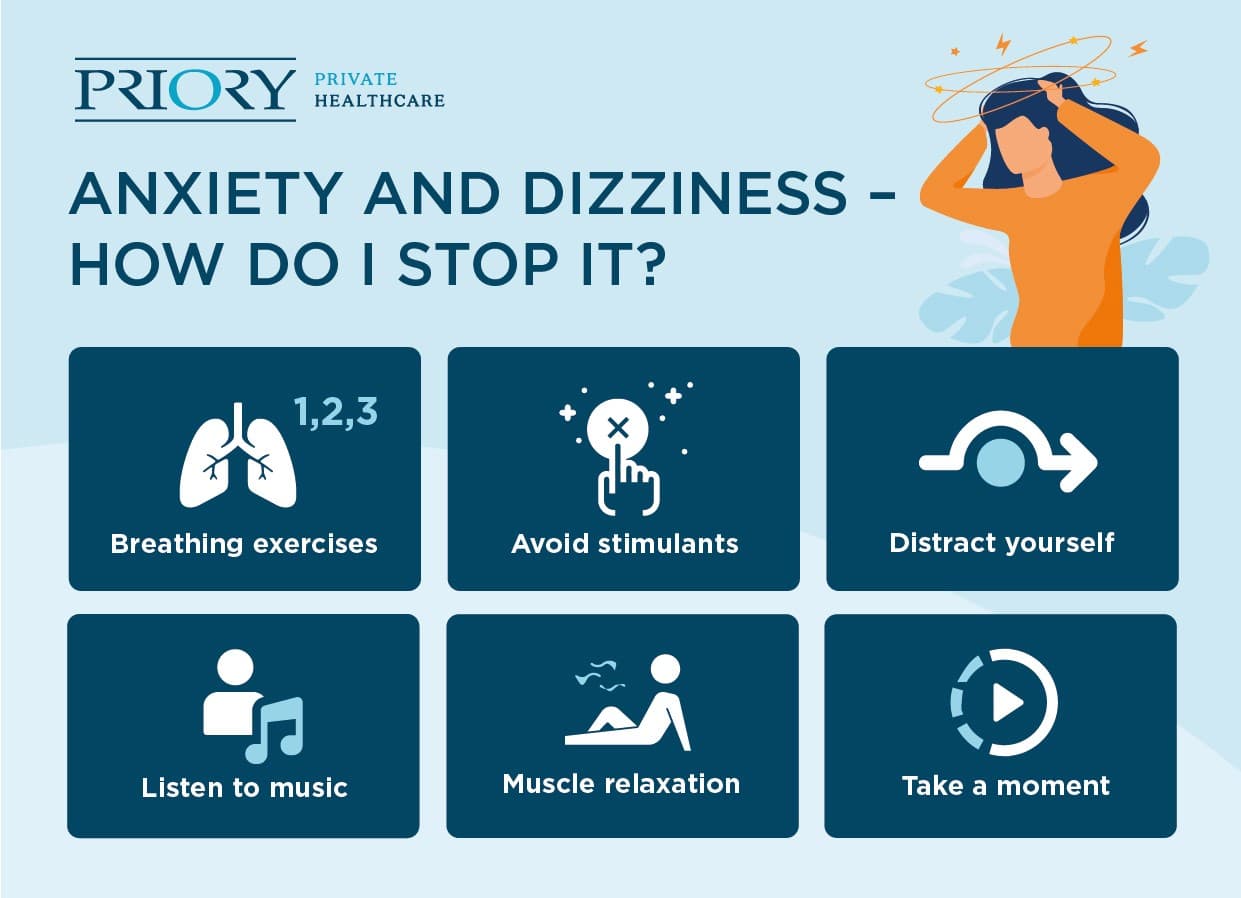Anxiety and dizziness – why does it happen?
What's the relationship between anxiety and dizziness? We explore the connection and how you can reduce dizziness as a result of anxiety.
What's the relationship between anxiety and dizziness? We explore the connection and how you can reduce dizziness as a result of anxiety.


Dizziness, light-headedness and a feeling that you might faint, all are commonly associated with feelings of anxiety. Anxiety and dizziness might happen to you for one of the following reasons:
Within this blog, we look closely at the different relationships that can exist between anxiety and dizziness, why it might be happening and what you can do about it if you're experiencing it.
Note: If you're experiencing anxiety and dizziness, your dizziness could be a symptom of a physical health condition, so it's always recommended that you seek medical advice to determine its cause.
Many types of anxiety can cause you to experience dizziness for the following reasons:
For some people, their anxiety and dizziness can intensify to the point that they experience panic attacks. Anxiety, dizziness and light-headedness symptoms may differ in intensity; on some days, the feeling may be especially intense, and on others it may feel much more bearable.
You may have found that your anxiety and dizziness increase when you’re in scenarios that you fear, such as in crowds or on public transport. Dizziness, when related to anxiety, will typically be accompanied by a sense of light-headedness or a feeling that you might faint. To know that your dizziness is being caused by your anxiety, other symptoms of anxiety will be present, like fearfulness, racing thoughts, an increased heart rate and an inability to concentrate.
If you experience dizziness regularly, or do so because of a health condition such as low blood pressure, anaemia or a vestibular disorder such as paroxysmal positional vertigo (BPPV), labyrinthitis or vestibular neuritis (also known as balance disorders), you may have started to feel anxious for one of the following reasons:
If you haven’t received medical support for your dizziness, it's highly recommended that you do so. With the right treatment from your doctor, you can start to better manage your dizziness, reduce your symptoms and stop it from having such a big impact on your life.
Remember that you can seek medical support for your mental health as well as your physical health. Treatment for anxiety is both highly effective and widely available. Speak to the healthcare provider treating your dizziness about your anxiety too, so that they can determine the best way forward.
You may also want to seek advice and treatment from a mental health specialist, such as Priory, so that you can start to put steps in place to manage your anxiety and improve how you feel overall.
A person can experience both anxiety and dizziness at the same time, without them being related in any way.
If you experience both and are uncertain of the reasons behind them, it's important to reach out to your healthcare provider. They'll be able to look at your symptoms, support you with any necessary diagnoses and refer you for any specialist treatment that's needed. This may include accessing both physical and mental health support.
Anxiety and feeling faint, dizzy and lightheaded is not a pleasant experience. Often, the appearance of these symptoms can bring you into a cycle of anxious feelings causing dizziness, which in turn deepens your anxiety. There are lots of things you can do to calm anxiety and lessen your symptoms fast. Try these quick tips and see what helps reduce your feelings of dizziness:

Over the long-term, adopting some coping strategies to deal with anxiety will help to reduce your anxious feelings and improve your overall wellbeing.
At Priory, we want to ensure we provide the very best service to everyone we support. Your feedback is really important to us.
